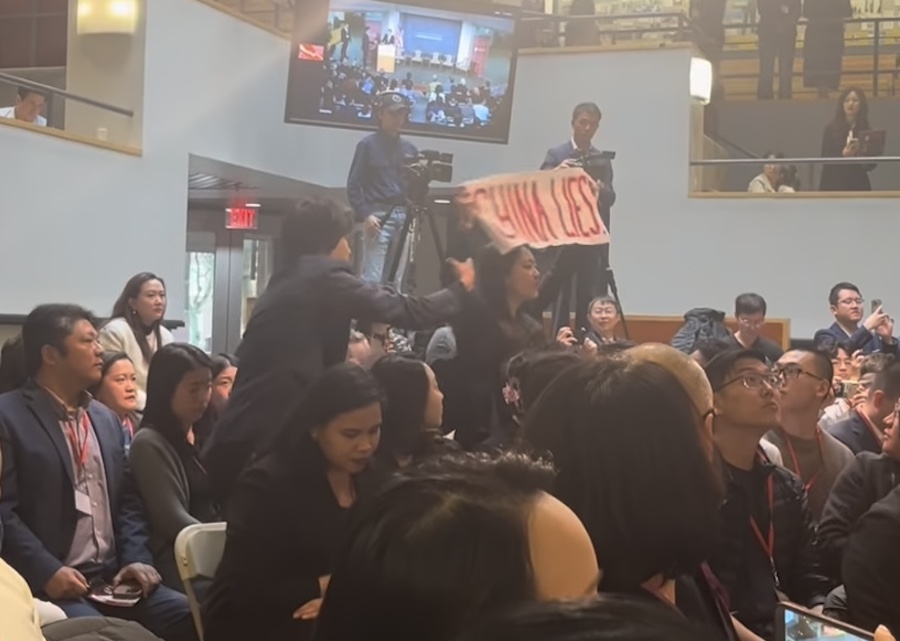60th Session of the Commission on Human Rights
Item 9 of the provisional agenda
Oral Statement of the Society for Threatened Peoples
Question of the violation of human rights and fundamental freedoms in any part of the world
Tenzin Samphel Kayta
Human Rights Officer
Tibet Bureau, Geneva
Mr. Chairman, I am delivering this statement on behalf of the Society for Threatened Peoples.
China has been trying to compromise the issue of human rights with the international community by releasing a few high profile political prisoners of conscience a month or so before the commencement of its annual UN Commission on Human Rights. Thus far China has found this policy effective in deflecting international criticism at the UN Commission on Human Rights and in bilateral dialogues. However, in the recent concluded high-level segment, Under Secretary of State for Global Affairs, USA Ms. Paula J.Dobriansky said ” This body should stand up for those who seek freedom around the world, such as the Tibetans who seek cultural and religious autonomy,………”
Because, there are serious concerns about a wide range of human rights issues in China, including the use of the death penalty, the treatment of dissidents, freedom of religion, the use of arbitrary detention and torture, freedom of expression, and the situation in Tibet.
As His Holiness the Dalai Lama has said, “Human Rights situation in Tibet have a distinct character of preventing Tibetans as a people from asserting their own identity and culture. The violations are a result of policies of racial and cultural discrimination and religious intolerance.”
Mr. Chairman, as Mr. Bill Rammell, MP and Minister of Foreign and Commonwealth Office, United Kingdom said in his statement at the High Level Segment of the 60th session of the Commission on Human Rights.
“But, there are times when the level of violations so high, when the consequences for the victims, the region and the world are so great, and when the political will to tackle the problems, alone or in cooperation, is so manifestly absent, that we have to take more immediate action. In these situations, we must sometimes rely on pressure – peer pressure – as the only means left by which to promote and protect those human rights which underpin the freedom, justice and peace to which we all aspire.”
The classic case is that of Lobsang Dhondup who was summarily executed on 26 January 2003 under closed trial for alleged involvement in a series of bombings. At the same time Tenzin Deleg Rinpoche, a respected Buddhist scholar in Tibet, was sentenced to death with two-year suspension for a crime he did not commit. Despite growing international concerns, it is feared that Tenzin Deleg Rinpoche could be executed in December 2004.
The Dalai Lama further said, “The current situation in Tibet benefits neither the Tibetans nor the government of the People’s Republic of China. The development projects that the Chinese Government has launched in Tibet – purportedly to benefit the Tibetan people – are however, having negative effects on the Tibetan people’s distinct cultural, religious and linguistic identity. China is undergoing a process of deep change. In order to affect this change smoothly and without chaos and violence I believe it is essential that there be more openness and greater freedom of information and proper awareness among the general public. We should seek truth from facts – facts that are not falsified.”
“I am hopeful that China will become more open and eventually more democratic. I have for many years advocated that the change and transformation of China should take place smoothly and without major upheavals. This is in the interest of not only the Chinese people but also the world community.”
However, we welcome the recent release of Phuntsok Nyidron, a Tibetan political prisoner of conscience who was released last month – one year before the completion of her sentence on medical parole. She was given 17 years of prison sentence. We call upon China to release other prisoners of conscience as well.
Mr. Chairman, in conclusion we call upon the Commission, to urge China to allow all Thematic Special Rapporteurs of the UN Commission on Human Rights, government monitoring agencies, journalists and NGOs to freely visit Tibet. Further, the Commission should call on China to release all prisoners of conscience, including Tenzin Delek Rinpoche and Gedhun Choekyi Nyima, the reincarnation of the 10th Panchen Lama, who is the youngest political prisoner in the world today.
Thank you.









